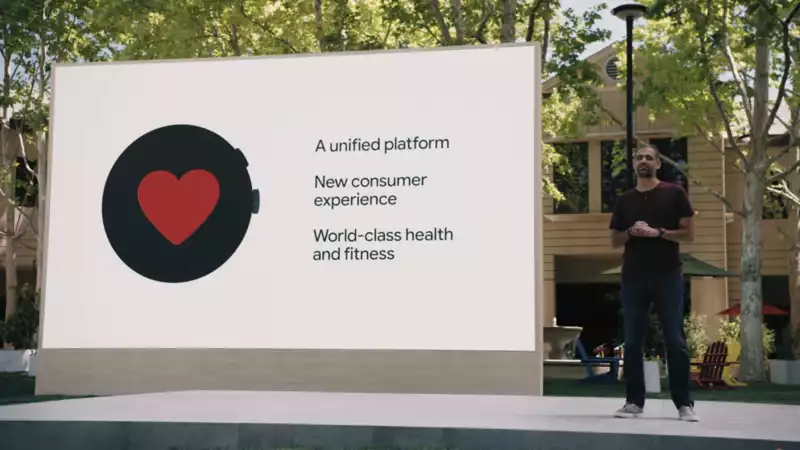Wear OS gets a major revamp. An updated version of the smartwatch platform debuted during Google I/O 2021, promising a host of new features and some significant surprises. (With rumors that the upcoming Samsung Galaxy Watch 4 will switch from Tizen to Google's software, we were wondering how Wear OS would step up to match the best smartwatch expected to arrive this year. Apparently, the answer is integration with Tizen. If we can't beat them, join them.
More of a comeback than an innovation, smartwatch makers that license Wear OS will likely gain momentum in the market. The latest version even borrows tools from the best Fitbit trackers, which officially became part of Google after the $2.1 billion acquisition was completed earlier this year; Fitbit will soon be producing its own Wear OS watches as well.
Here's everything else we know about what the next version of Wear OS will include. And what these changes mean for the world of wearable computing.
A few months ago, when the transition from Tizen to Wear OS began to be rumored, I was all for it. I thought that Samsung should definitely get in on the act, since they produce the best Android phones using Google's smartphone software. So why can't they do the same with Wear OS?
Of course, Samsung can't do it alone. Google is clearly behind the scenes revamping its wearable platform and introducing more open-source options. There are still questions about how Google and Samsung will come to terms with developers and ensure that all apps currently available in the Tizen store will also be listed in the Wear OS store. Google Fit vs. Samsung Health, Google Assistant vs. Bixby would also require compromises.
The answer will come soon; I/O has confirmed that a new version of Wear OS will be included in the "next Galaxy Watch." But there is no news yet on what that means for previous watches like the Samsung Galaxy Watch 3 and Samsung Galaxy Watch Active 2.
Tiles will allow users to customize the Wear OS interface, organizing pre-selected apps into a quick scrolling library. I have felt indifferent towards Tiles. It's better than no customizable app menu, but Apple's Complications and Dock navigation are less cumbersome.
One particular advantage that all the best Apple Watch models running Apple Watch 6 and the latest watchOS 7 software have over other smartwatches is the amount of compatible apps. Most popular iOS app developers offer watchOS versions with information and features relevant to what users want to wear on their wrists.
Google is sticking with Tiles, but seems to be encouraging more app developers. Any developer can now create Wear OS Tiles. This means that users will soon be able to see updates from their favorite third-party apps as well as Google's native apps.
Speaking of Google's native apps, several updates are planned for Wear OS: Google Maps will offer turn-by-turn navigation, Google Pay will offer support for more than 200 public transportation stations and dozens of countries, and Google Pay will offer support for the Google Maps app, which will be available in more than 200 countries.
The last major update brought to Wear OS is not a complete surprise. It was a matter of "when," not "if," that Google would leverage the tools of its new entity. And given that the Fitbit acquisition was just officially announced in January 2021, the company wasted no time.
Google did not provide many details about which Fitbit features would go into the Wear OS platform; during I/O, Google said certain health and fitness metrics would be viewable on compatible smartwatches. It also said that users will be able to see their daily health progress and rewards earned.
Eventually, all existing Fitbit features should be seen on the Wear OS version. Google teased that premium Fitbit smartwatches will be made with Wear OS in the future, promising ambient integration with the larger Google ecosystem.
From what we heard at I/O, the next update to Wear OS could turn the tide for the controversial platform. It has received a major boost from the software provider that Google once called a competitor, absorbing Tizen users and borrowing Fitbit's industry-leading fitness tools.
We knew that Google would have to transform its wearables approach with the acquisition of Fitbit, so the announcement of the update is not a complete surprise. Still, without announcing its own physical smartwatch, Google left no stone unturned in reviving its Wear OS. The days of this software being the bottom line for smartwatches are over.
.









Comments